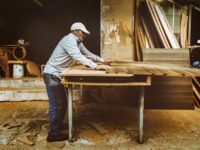How to be Good in Science Subjects?

Doing well in science depends on having the ability to learn and participate in the classroom effectively. If the science curriculum includes labs, students would have to do a great job in laboratories. Students should have strong study skills that they have gained in other courses, all of which can be used to do well in science.
A student who appeared unfocused may also have learning difficulties and require special care. There are several ways in which teachers can continue to increase students’ attention. Example: To make them read textbooks related to concepts and to conduct quiz related to physics questions and so on.
Useful Strategies to be Good in Science Subjects
Studying science topics contributes to a number of student qualifications and skillsets. Our lives and brains are influenced by studying science subjects. Few of the best approaches to be good in science topics are listed below.
Having organized study notes
In class, the notes you make will make you realize what and how to learn in classes. Do not write down all that the teacher is saying. Alternatively, pay close attention to any information the teacher says is expected to be used in exams. Taking support in writing notes is an option that many institutions will provide for learning disabilities. If you need such accommodation, please visit your school’s academic accessibility department.
After class, re-read the notes.
Check with your classmates or teacher to confirm that you do have the right information if there is anything in the observations that confuses you, or even that you feel might be incorrect. When you wait much longer for your notes to read, you can not recall the class sufficiently to make use of it. More concisely, it can help you to revise your notes. The above method guarantees that you have truly grasped the meaning.
Read the material assigned.
If learning from a website or textbook is recommended by your teacher, find time to study this before they enter the classroom. It’s a great idea to scan it so you’ll have an understanding of what it was about if you do not have time to read it quite well. At least you can understand the essential discussion that is going on, even though you don’t know exactly what the teacher is going to talk about during class. Most educators will go through the same material assigned to you as the classroom discussion.
Pay close attention to demonstrations.
Science classes also have presentations that you are supposed to be replicate made by the teacher or other students. It’s a matter of paying careful attention to every presentation that’s taught in the class whether you’re planning to do well in science. Make sure anyone else doesn’t obstruct your sight of the demo. If you can, change your seats to see it. Ask permission from your teacher if you need to get up or leave to some other seat.
Be confident in the lab.
Many science courses include laboratories that are explanations of methods that you have heard in your textbook or seminars. Your instructor is expecting students to show skills in the laboratory. Scan the lab guidelines before class. Where you would need clarity, mark points. As the lab will relate to the previous class, you also might want to read through the notes of the last lecture.
Formulate the study plan
Students will almost certainly find some topics more comfortable than others and need more review than to other topics. Modification of the plan to achieve the best possible effect of time utilization. A list to when is the right time to learn and which subject needs more focus and so on must be made. For instance, if students consider chemistry to be a problem topic, then prepare a specific study plan to strengthen the subject concepts, such as solving more chemistry questions and reading more chemistry-related textbook and so on.
Conclusion
Being good at science creates trust and promotes the growth and development of learning environments. Without science, knowledge will not grow as significantly and this may reduce our exposure to new concepts and people.








